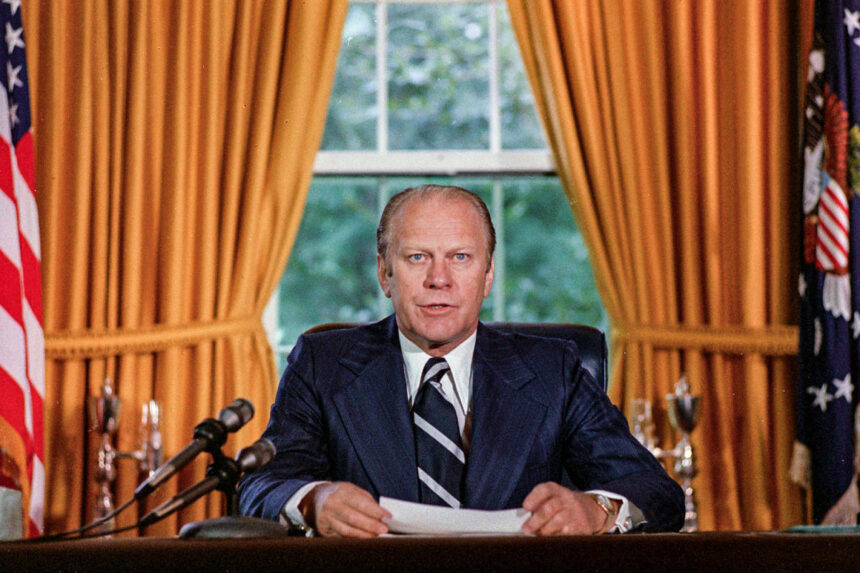Donald Trump’s immunity claims reached the U.S. Supreme Court last week, and during oral arguments, Justice Brett Kavanaugh — a Trump nominee — thought it’d be a good idea to bring up Gerald Ford’s decision to pardon Richard Nixon in 1974.
The then-president’s decision, the conservative jurist said, was “very controversial in the moment.” Former Deputy Solicitor General Michael Dreeben, a member of special counsel Jack Smith’s team agreed.
It was “hugely unpopular” and “probably why” Ford lost in 1976, Kavanaugh said, and again, Dreeben agreed.
The justice then added, however, that Ford’s decision is now “looked upon as one of the better decisions in presidential history, I think, by most people.” Kavanaugh, kicking around the idea that presidents might need to be shielded, imagined whether Ford might’ve been concerned about facing an obstruction investigation for having interfered with prosecutors’ case against Nixon.
In context, the justice’s point seemed to be that Ford did something courageous, and the Republican has been vindicated by history, but the then-president might not have taken this commendable step if he were concerned about possibly being held criminally liable — all of which, Kavanaugh suggested, speaks to the need for some kind of presidential immunity.
But there are a handful of important problems with this.
First, Ford made no claims to presidential immunity and faced no prosecutorial scrutiny in the wake of his Nixon pardon.
Second, Kavanaugh’s claim that “most people” see Ford’s pardon as “one of the better decisions in presidential history” is unsupported by evidence. A Washington Post analysis last week noted that scholars and Americans in general do not necessarily hold Ford’s decision in such a high regard.
And third, I’m curious about whether Kavanaugh has ever actually read Ford’s pardon.
Perhaps the justice should’ve watched Rachel Maddow talk to Chris Hayes about this in February, when she explained why Ford’s pardon discredits the idea that the immunity argument somehow constitutes an open question.
“This is B.S.—you were doing this as a dilatory tactic to help your political friend,” says @Maddow on SCOTUS. “And for you to say that this is something that the Court needs to decide because it’s something that’s unclear in the law is just flagrant, flagrant bullpucky.” pic.twitter.com/v1NKDorzb0
— All In with Chris Hayes (@allinwithchris) February 29, 2024
So let’s take stock. The Supreme Court heard oral arguments last week in a case in which a corrupt and indicted former president, fearing legal consequences, is claiming absolute immunity. At least some of the justices treated the underlying question as a legitimate and unresolved.
It was against this backdrop that one of the justices chosen for the high court by the corrupt and indicted former president pointed to Ford’s pardon of Nixon — which largely answered the question that the jurist and his colleagues are pondering, by proving once and for all that a former president was subject to prosecution for alleged crimes he committed while in office.
This article was originally published on MSNBC.com

